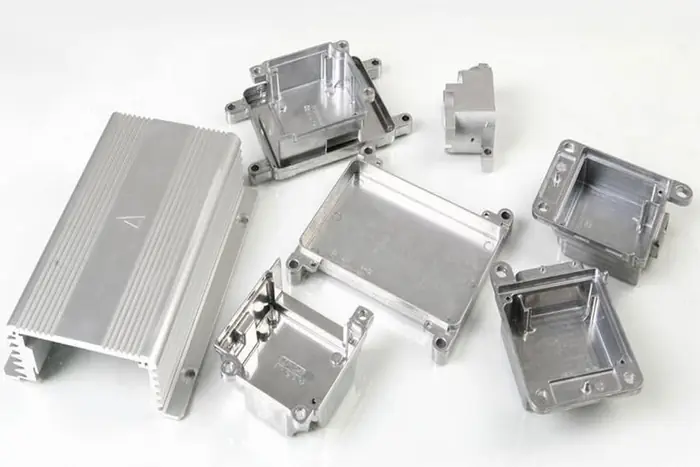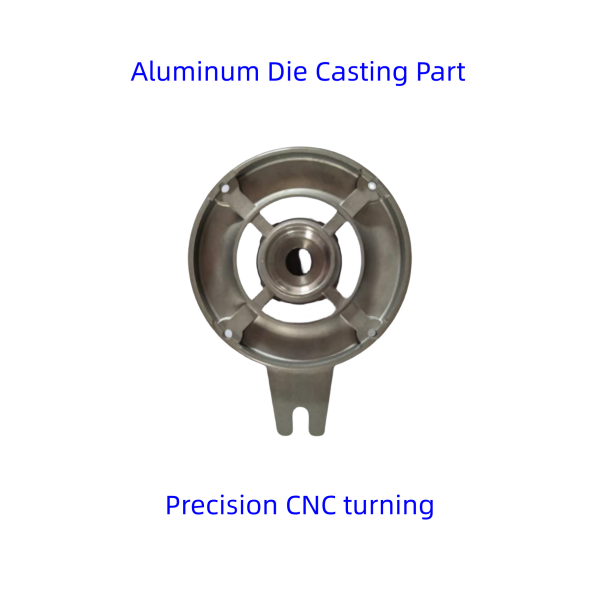The Future of Light Weight Aluminum Foundries: Innovations and patterns Forming the Market
The light weight aluminum factory market is undergoing significant improvement. Secret trends highlight the value of sustainability and effectiveness. Innovations in wise production and automation are ending up being prevalent. Foundries are progressively concentrated on using recycled materials. This change questions about future practices and modern technologies. How will these adjustments influence production methods and market characteristics? The answers might redefine the sector landscape in unanticipated ways.
Improvements in Smart Production Technologies
As the light weight aluminum shop industry develops, improvements in clever production innovations are ending up being significantly necessary for boosting efficiency and performance. The integration of automation, fabricated knowledge, and the Web of Points (IoT) is changing standard factory procedures. These innovations make it possible for real-time surveillance of processes, permitting instant adjustments that optimize output and reduce waste.
Additionally, artificial intelligence formulas examine production information to determine patterns and forecast upkeep demands, lessening downtime. Robotics are increasingly used for repetitive tasks, freeing competent workers to concentrate on even more complicated challenges. Additionally, electronic doubles-- digital models of physical procedures-- assist in simulations that can improve layout and operational techniques.
The adoption of these wise production innovations is driving affordable benefits in the aluminum shop market. By streamlining process and boosting decision-making abilities, shops can fulfill growing market demands while maintaining top notch standards. The future of aluminum factories is indisputably linked to these technological innovations.
Welcoming Eco-Friendly Products and Processes
The light weight aluminum foundry market is significantly concentrating on environment-friendly materials and processes to boost sustainability. This change includes the fostering of lasting material sourcing, energy-efficient manufacturing strategies, and reliable recycling and waste management techniques. By integrating these methods, factories intend to reduce their ecological influence while maintaining competitiveness in the market.
Sustainable Material Sourcing
Exactly how can light weight aluminum foundries enhance their sustainability efforts? Lasting product sourcing has emerged as a necessary strategy in achieving this objective. By prioritizing recycled aluminum, factories can considerably lower their ecological impact, as recycled materials need much less energy and fewer sources contrasted to primary aluminum manufacturing. In addition, sourcing materials from accredited providers that stick to environment-friendly methods promotes responsible mining and decreases ecological effect. Factories are likewise checking out alternate materials, such as biopolymers and eco-friendly coverings, to enhance typical light weight aluminum procedures. Working together with stakeholders, including providers and environmental organizations, cultivates innovation in sourcing strategies. Inevitably, welcoming lasting material sourcing not only straightens with global sustainability objectives yet also placements light weight aluminum shops as leaders in environmentally liable production.
Energy-Efficient Production Methods
Aluminum factories are progressively adopting energy-efficient manufacturing strategies to match their sustainable material sourcing campaigns. These methods focus on reducing power consumption throughout the production procedure. Advanced modern technologies, such as induction melting and enhanced casting procedures, are being executed to reduce the total carbon impact. Additionally, automation and clever production systems enhance operational performance, permitting better energy administration. Shops are likewise exploring the combination of renewable power sources, such as solar and wind, to power their operations. By focusing on energy efficiency, light weight aluminum shops not only reduced production expenses yet also straighten themselves with global sustainability objectives, guaranteeing a much more environmentally responsible method to light weight aluminum manufacturing while meeting the increasing need for environment-friendly practices in the market.
Reusing and Waste Monitoring
Welcoming eco-friendly materials and procedures, light weight aluminum shops are prioritizing recycling and waste monitoring techniques to boost sustainability in their procedures. By integrating closed-loop systems, these facilities are lessening waste and making best use of source efficiency. Scrap aluminum, an easily available product, is being reused on-site, substantially decreasing the requirement for virgin materials and reducing power usage. Advancements in sorting and processing innovations further help with the recycling of light weight aluminum, guaranteeing that also contaminated materials can be repurposed effectively. Furthermore, foundries are embracing sustainable techniques such as minimizing harmful waste and advertising making use of biodegradable materials for product packaging. This commitment to reusing not just lowers environmental effect however likewise enhances the economic practicality of aluminum shops in an open market.
The Duty of Automation and Robotics
Automation and robotics are significantly changing the aluminum factory industry, substantially enhancing production effectiveness. By integrating sophisticated technologies, shops can minimize labor prices while at the same time improving safety and security standards for their labor force. This change not just simplifies operations yet additionally positions the market for lasting growth in a competitive market.
Boosted Production Efficiency
Changing production procedures, the assimilation of innovative robotics and automation modern technologies has actually become a keystone for aluminum factories looking for boosted performance. These technologies enhance workflows, lower cycle times, and enhance product high quality by decreasing human mistake. Automated systems can keep an eye on manufacturing lines in real-time, permitting prompt modifications that optimize outcome. In enhancement, robotics help with the handling of harmful materials, making sure safer workplace while boosting throughput. Predictive upkeep modern technologies also contribute to effectiveness by expecting equipment failures, thereby decreasing downtime. Because of this, aluminum foundries can accomplish better uniformity in their items while responding more swiftly to market demands. This welcome of automation is setting a new standard for efficiency and operational quality within the industry.

Lowering Labor Prices
The change towards advanced robotics and automation in aluminum foundries not just improves production performance but likewise plays a substantial role in decreasing labor costs. By integrating automated systems, shops can decrease the dependence on manual work, which typically includes high salaries and training expenses. Robotics improve repetitive tasks such as putting, molding, and ending up, enabling for a higher outcome with less employees. This technological change not just minimizes labor-related costs yet likewise improves uniformity and high quality in manufacturing. Automation can operate around the clock, making best use of operational hours without the connected costs of overtime or shift differentials. Because of this, aluminum factories can achieve considerable savings while preserving competitive prices in an advancing market landscape.
Improving Safety Standards
While typical aluminum factory operations commonly reveal employees to hazardous settings, the assimilation of robotics and automation significantly boosts security criteria within the industry. Automated systems can do risky tasks, such as liquified steel handling and heavy lifting, lowering human exposure to harmful problems. In addition, robotics can operate in extreme temperature levels and poisonous atmospheres, effectively reducing the threat of injury. Advanced keeping an eye on technologies and expert system assurance real-time safety assessments, permitting prompt reactions to possible threats. Furthermore, automation improves operations, reducing the probability of mishaps brought on by human mistake. As an outcome, the adoption of these modern technologies not just improves safety but also promotes a much more reliable and productive working setting in aluminum foundries.
Enhancing Power Performance in Manufacturing
As light weight aluminum shops look for to maintain competitiveness in a developing market, enhancing energy efficiency in manufacturing Clicking Here has actually emerged as an important emphasis. By adopting innovative technologies such as high-efficiency melting heaters and automated temperature controls, foundries can especially minimize energy intake. Implementing real-time surveillance systems permits for accurate tracking of power use throughout the manufacturing procedure, enabling fast modifications to optimize performance.
Additionally, changing to alternate power sources, including eco-friendly options, can even more decrease the carbon impact. The integration of power healing systems, which recover waste heat for reuse, is becoming progressively common. Educating personnel in power management techniques guarantees that every person included in the manufacturing procedure bears in mind power use.
These efforts not just lower operational prices however likewise align with worldwide sustainability objectives, placing aluminum factories as liable players in the market while improving their total competitiveness. - aluminum casting
Technologies in Recycling Light Weight Aluminum
Advancements in recycling aluminum have actually gotten energy along with efforts to boost power performance in production. The light weight aluminum market has welcomed advanced technologies that improve the reusing process, lowering power intake and ecological impact. Techniques such as hydrometallurgy and new sorting innovations enhance the removal of light weight aluminum from scrap, boosting return prices and ensuring better recycled material.
The advancement of closed-loop recycling systems allows foundries to reuse light weight aluminum without significant degradation in high quality, making the his explanation process a lot more lasting. Advancements in logistics and collection, consisting of enhanced monitoring systems and automated sorting, have also played a vital role in increasing the efficiency of light weight aluminum recuperation. These improvements not only add to a circular economy yet likewise help minimize the carbon impact associated with light weight aluminum production. As the need for sustainable practices expands, these developments position the light weight aluminum shop industry as a leader in responsible resource monitoring.
Reacting to Market Demands and Customer Trends
Versatility has come to be a foundation for aluminum shops reacting to progressing market demands and customer patterns. As markets significantly prioritize sustainability, light weight aluminum factories are changing towards environmentally friendly techniques, including boosted recycling procedures and decreased carbon impacts. This shift lines up with customer choices for ecologically accountable products, driving shops to innovate their offerings.
Furthermore, the surge of lightweight materials in automotive and aerospace industries requires developments in light weight aluminum alloys and casting strategies. Foundries are buying r & d to create high-strength, light-weight components that satisfy rigorous performance criteria.
In addition, customization has gotten grip, with consumers looking for tailored services. Aluminum shops are leveraging advanced production technologies, such as 3D printing, to suit certain client demands efficiently. This responsiveness not only satisfies consumer demands yet likewise positions aluminum shops competitively in a vibrant market landscape, guaranteeing their relevance in an ever-changing commercial environment.

Often Asked Concerns
How Do Light Weight Aluminum Foundries Influence Resident Economies?
Aluminum shops considerably affect local economies by developing jobs, boosting demand for local distributors, and adding to community growth. Their operations often bring about enhanced tax revenues, which can money crucial civil services and infrastructure enhancements.
What Are the Safety Rules for Aluminum Shop Employees?
Security regulations for aluminum factory workers consist of necessary individual protective tools, correct ventilation systems, normal training on hazardous products, and adherence to standards established by job-related health and wellness and safety managements to reduce threats and assurance worker safety and security. - Precision aluminum casting
Just How Does Aluminum Recycling Affect Global Supply Chains?
Light weight aluminum recycling substantially decreases need for resources, boosts source efficiency, and maintains costs. This shift influences worldwide supply chains by cultivating a round economy, promoting sustainability, and ensuring a much more durable sector in fluctuating markets.
What Profession Opportunities Exist in the Aluminum Factory Sector?
Various occupation possibilities exist in the light weight aluminum foundry industry, including functions in engineering, quality assurance, manufacturing monitoring, and study and growth. Competent labor settings such as mold makers and machine operators are likewise popular.
Exactly How Do International Trade Policies Influence Aluminum Foundries?
International trade plans significantly impact aluminum shops by impacting import tariffs, supply chain characteristics, and market gain access to. These elements can affect operational expenses, competitiveness, and general productivity within the international aluminum production landscape.
By look these up prioritizing recycled aluminum, factories can significantly lower their environmental footprint, as recycled materials require less energy and less sources compared to primary aluminum production. Light weight aluminum foundries are increasingly embracing energy-efficient production methods to match their sustainable material sourcing initiatives. Automation and robotics are significantly transforming the light weight aluminum shop sector, significantly enhancing manufacturing effectiveness. The shift in the direction of advanced robotics and automation in light weight aluminum factories not just boosts manufacturing efficiency yet likewise plays a significant duty in lowering labor expenses. As light weight aluminum factories look for to preserve competition in an advancing market, improving energy performance in production has actually arised as a critical emphasis.